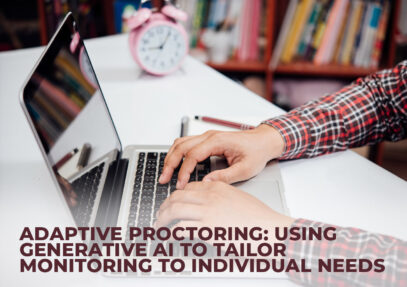
Fostering strong and cohesive teams is vital for business success. Teams that work well together not only boost productivity but also create a positive work environment that attracts and retains top talent. One key factor in building such teams is empathy. Empathy in the office is one of the most important skills we can all learn and develop. Without it, we cannot succeed as a team, lead with clarity, or build healthy relationships.
In a survey by EY, more than 90% of employees regarded empathetic leadership as a critical factor in job satisfaction. Furthermore, 93% of employees, as per a study, would stay with an empathetic employer. About 82% of employees also confirmed that they would leave their position to work for a more empathetic organization.
These numbers very well elucidate the importance of empathy in the workplace and its impact on team cohesion. For this article, we look at empathy’s influence from the lens of emotional intelligence and how it helps build stronger teams.
How Does Emotional Intelligence Build Stronger Teams?
The ability to detect, analyze, and control one’s own emotions while simultaneously being sensitive to the feelings of others is referred to as Emotional Intelligence (EI). EI is important in developing stronger teams for various reasons:
1. Creates A Positive Work Environment
Cultivating a positive work environment is one of the most significant contributions of emotional intelligence to team dynamics. Leaders and team members with high EI are more likely to promote a workplace culture of trust, respect, and support. When employees feel heard and understood, they are more likely to be motivated, satisfied, and engaged in their jobs.
2. Enhances Interpersonal Relationships
Emotional intelligence strengthens interpersonal relationships within teams as it helps individuals communicate effectively, resolve conflicts, and build rapport. Team members who possess high EI are better equipped to comprehend the perspectives and feelings of their colleagues, leading to improved collaboration and cooperation.
For example, a study on staff nurses in Vietnam outlined that interpersonal interactions at work are critical to overall well-being and performance evaluations. The study confirmed that the relationship between staff nurses and leaders has a significant influence on the overall quality of workplace relationships. This “quality” was further associated with lower job stress, higher commitment, and increased social impact perception.
3. Increases Employee Morale & Engagement
Leaders and team members with high EI are skilled at identifying their colleagues’ emotional requirements. They can offer essential encouragement and assistance, which enhances staff morale and engagement. Employees are more inclined to engage their energy and commit to tasks when they feel respected and cared for.
In addition, the ability to connect with others can help the team face the unknown challenges of the workplace. The team members’ ability to be empathetic offers them a stronger level of fortitude and resilience during times of stress and uncertainty.
4. Improves Conflict Resolution & Problem-Solving
According to 2022 research, 36% of people now report having to deal with conflict often, very often, or all the time, up from 29% in 2008. The more time an individual spends amid conflicts at work, the lower their job satisfaction. Plus, they feel less included. This is not just a matter of personal discomfort; workplace conflict carries a hefty price tag — costing businesses a staggering $359 billion annually.
Empathy is a crucial element of conflict resolution. It can help prevent misunderstandings and miscommunications in decision-making. Team members with high EI and a sense of empathy have an easier time working together to establish clear goals, expectations, and methods of communication.
How To Foster Empathy In The Office?
Now that we’ve established the value of emotional intelligence in team building, let’s look at some ways to foster empathy in the office:
1. Role-Playing Exercises & Simulations
Simulations and role-playing exercises can be helpful techniques for developing empathy. These exercises help employees to put themselves in the shoes of their coworkers or clients, experiencing their points of view and emotions. This direct experience creates a better awareness of the emotions and needs of others.
2. Creating Opportunities For Open Dialogue & Feedback
It is critical to foster empathy in the workplace by encouraging open and honest communication. Organizations can provide avenues for team members to express their thoughts, concerns, and feedback. Listening attentively and responding empathetically to the experiences of others builds a culture of empathy within the team.
3. Leading By Example
Leaders play a critical role in setting the tone for empathy in the workplace. Leading by example, they can demonstrate the importance of empathy through their actions and decisions.
Consider the example of Ratan Tata of the Tata Group. While there are far too many lessons to be drawn from Ratan Tata’s tenure, his “caring for everybody – the community and his workers” is precisely what has made him a hero. He is recognized for his trust, morals, and honesty, and all these qualities have perpetuated to the different levels of the ventures he has overseen.
Wrapping Up
Empathy in the office is critical in developing better professional teams. Organizations that value people with high emotional intelligence are more likely to foster suitable work environments, strengthen interpersonal connections for improved productivity, increase employee morale and engagement, and more. They are better equipped to address and alleviate any challenges or conflicts that transpire.
Want to work at a place that values your perspectives, supports you through the process, and fosters open communication? Visit our careers page today and apply for the positions that best suit your interests.

















Comment